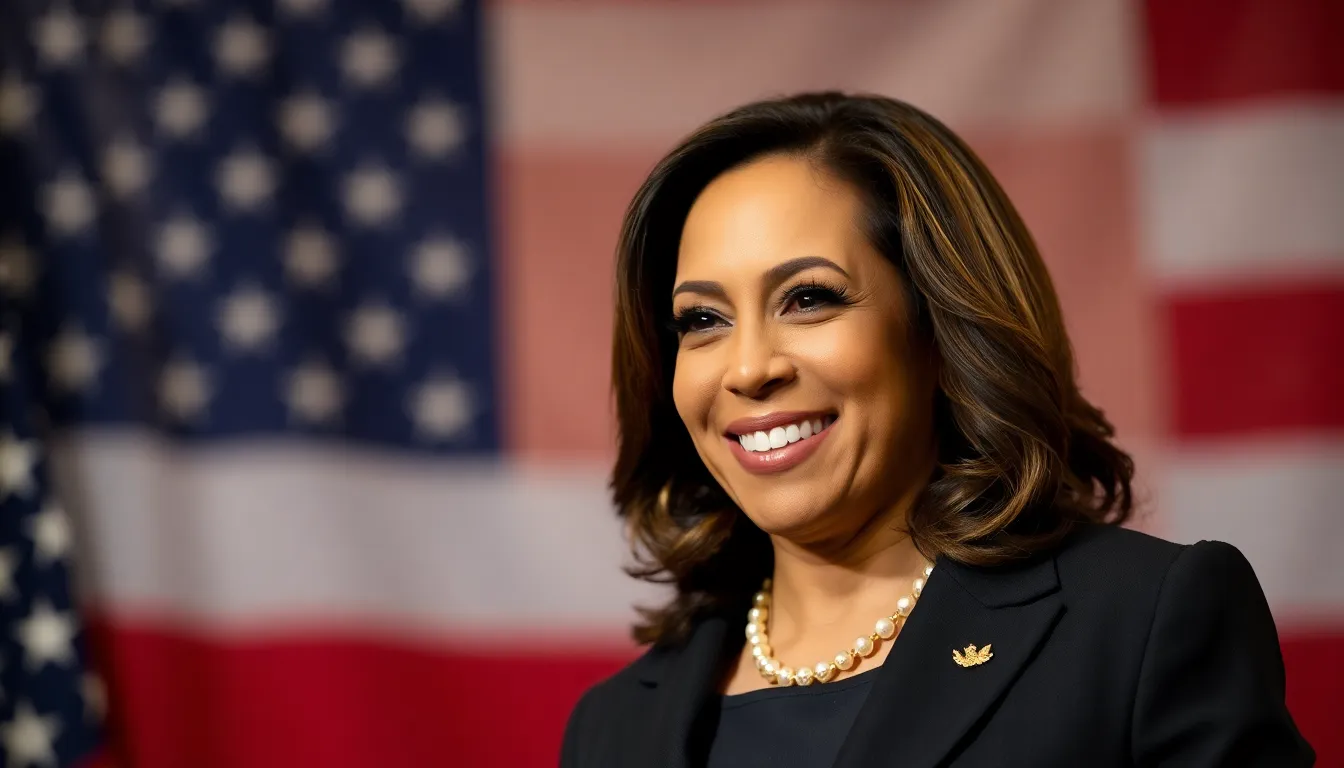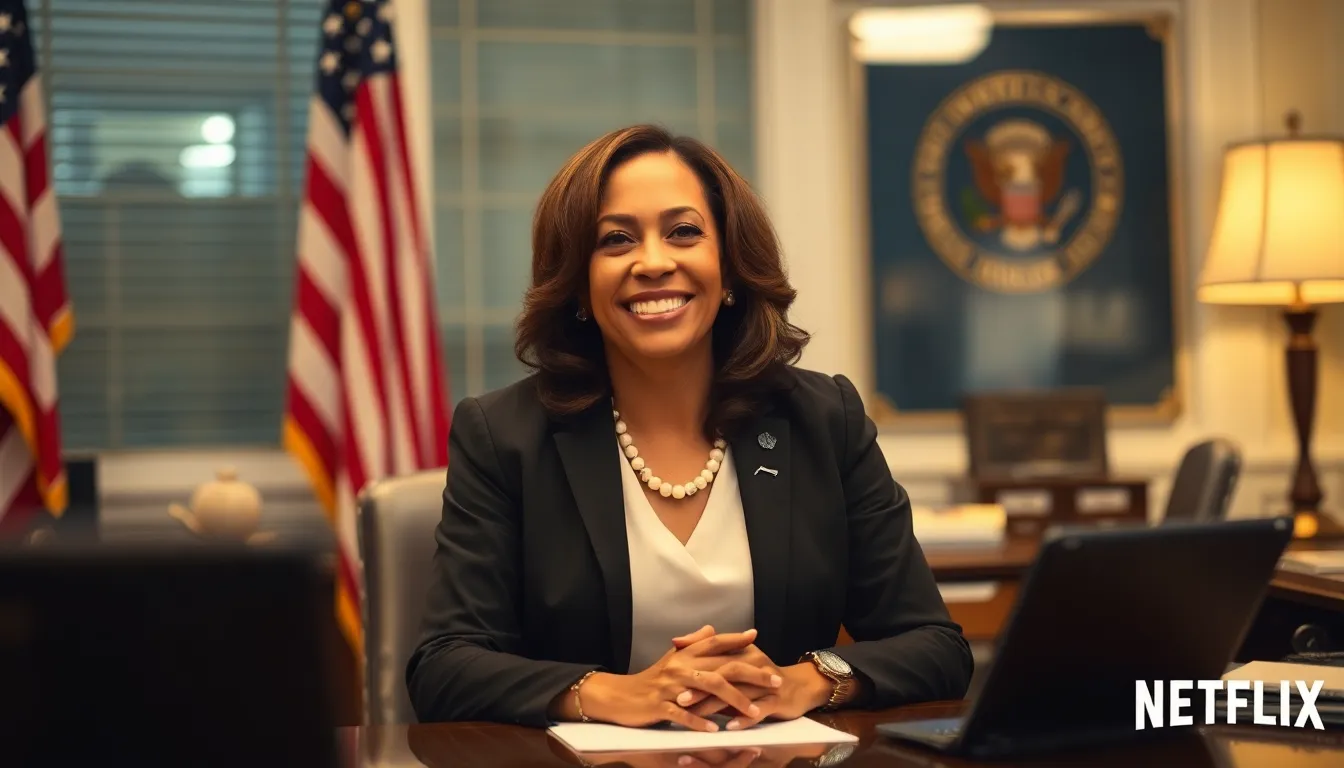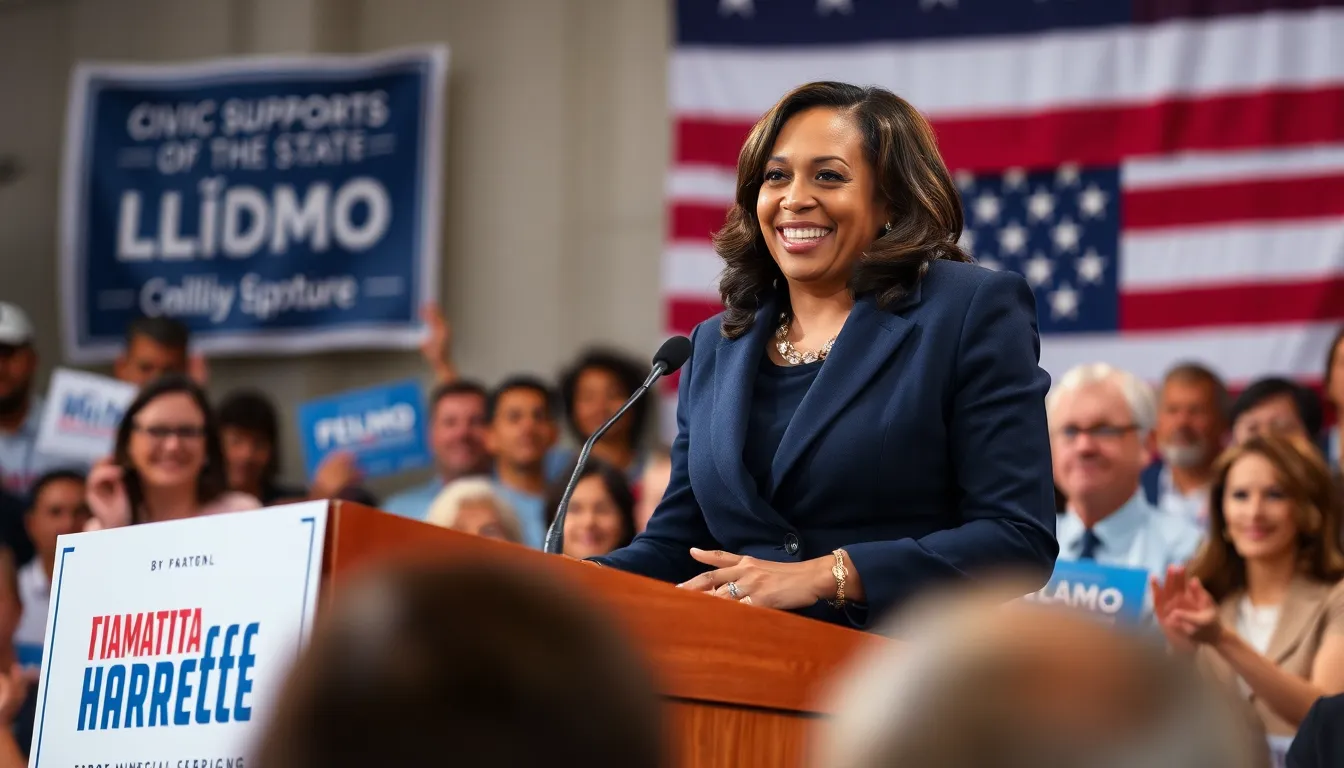In a world where streaming giants and politics often collide, Netflix’s recent donation to Kamala Harris has sparked quite the conversation. It’s not every day that a platform known for binge-worthy shows steps into the political arena. But when it does, you can bet it’s going to be a plot twist worthy of a season finale.
As viewers dive into the latest dramas and comedies, they might find themselves wondering: what’s the connection between their favorite shows and political campaigns? This unexpected donation raises eyebrows and questions about influence, responsibility, and the intersection of entertainment and governance. Buckle up, because this isn’t just another episode; it’s a deep dive into how media moguls are shaping the political landscape, one donation at a time.
Table of Contents
ToggleOverview of Netflix Donation to Kamala Harris
Netflix’s donation to Kamala Harris marks a pivotal event in the intersection of entertainment and politics. The contribution amounts to $1 million, significantly bolstering her campaign efforts. With this gesture, Netflix underscores its commitment to influencing political discourse and supporting candidates aligned with its values.
Contributions from media companies like Netflix raise important discussions about their role in political processes. Streaming platforms can wield considerable influence over public opinion and voter engagement. Such financial support amplifies the voices of targeted candidates while potentially swaying electoral outcomes.
Critics express concerns about the implications of corporate donations within political landscapes. The blending of entertainment and politics can lead to questions about transparency and integrity. Stakeholders in both industries must consider the long-term effects of their financial maneuvers on democratic practices.
Analysis of this donation highlights broader trends in campaign financing. Companies can shape political narratives through strategic financial investments. Observers may note the implications for future electoral cycles as more media companies engage in similar practices.
The intersection of streaming and politics may redefine campaign strategies as digital platforms continue to grow. Marketers recognize that partnerships with popular figures can revolutionize traditional methods of rallying support. As media companies take on more active roles in politics, the responsibility to ensure ethical engagement becomes paramount.
Background Information


Netflix recently donated $1 million to Kamala Harris’s campaign, bridging entertainment and politics. This donation marks a significant moment in political financing trends.
Netflix’s Political Contributions
Netflix has made notable political contributions in recent years. The $1 million donation to Harris aligns with its commitment to candidates who reflect progressive values. This financial support continues a trend where media companies influence political campaigns. Previous contributions by Netflix have targeted various political races, demonstrating the company’s belief in civic engagement. Its investment in political discourse raises questions about the impact corporate funds have on elections.
Kamala Harris’s Political Journey
Kamala Harris’s political journey began as the District Attorney of San Francisco in 2004. She later served as the Attorney General of California, where she gained national recognition for her stances on criminal justice reform. In 2016, she was elected to the U.S. Senate, focusing on issues such as healthcare and immigration. Her bid for the presidency in 2020 placed her in the spotlight, emphasizing her progressive policies. As Vice President, she represents a historic milestone in American politics, highlighting her influence and commitment to public service.
Impact of the Donation
This $1 million contribution from Netflix to Kamala Harris generates significant conversation across social media and news outlets. Many commentators express strong support, viewing the donation as a strategic move that aligns with Harris’s values. Critics, however, voice concerns about corporate influence in politics, arguing this donation distorts democratic processes and prioritizes corporate interests over constituents’ needs. Some believe that such financial support reinforces the narrative that large companies interfere in elections, potentially leading to increased skepticism among voters about the integrity of political campaigns.
Public Reactions
Reactions to the donation are mixed, with both enthusiasm and criticism present. Supporters praise Netflix for standing behind progressive candidates, emphasizing the importance of aligning political contributions with corporate values. Detractors highlight the potential for corruption, suggesting that this funding could shift policy focuses toward corporate interests. Social media discussions illustrate the divide, showcasing how different demographics perceive corporate donations in political landscapes.
Implications for Netflix
Netflix’s financial support of Kamala Harris carries several implications for the company’s future endeavors. This donation positions Netflix within the broader context of corporate political giving, signaling its commitment to fostering progressive agendas. Many industry analysts foresee this impacting Netflix’s public image, as stakeholders may scrutinize its choices in both content and political affiliations. Financial contributions to political candidates could also prompt other organizations to reassess their engagement strategies, shaping future campaign financing trends in the media sector.
Criticism and Controversies
Diverse opinions surround Netflix’s donation to Kamala Harris. Critics raise ethical concerns about the influence of large corporations in politics. Corporate donations like this blur the line between financial support and undue influence. Transparency issues arise, as stakeholders question the accountability of both Netflix and political figures receiving such funds. Corporate involvement in politics often raises fears about prioritizing business interests over public welfare.
Ethical Concerns
Significant ethical concerns accompany Netflix’s contribution to Kamala Harris’s campaign. Critics argue that large donations can skew political priorities, favoring corporate interests over constituents. This blending of entertainment and politics creates a perception of corruption, hindering genuine democratic processes. Public trust erodes when voters perceive politicians primarily as allies of powerful corporations. Activism for stricter regulations on campaign financing intensifies in response to such donations, emphasizing the need for a more transparent political landscape.
Comparison with Other Donations
Comparisons with other corporate contributions highlight a trend in political financing. Netflix’s donation of $1 million stands out among tech and media companies that support progressive candidates. Companies like Amazon and Google engage in similar donations, emphasizing a corporate trend in aligning with Democratic campaigns. The scale of Netflix’s contribution raises questions about its impact on public policy compared to smaller, less influential donations. Observers note that such donations often reflect broader political strategies aimed at shaping electoral outcomes and leveraging corporate identities.
Netflix’s $1 million donation to Kamala Harris marks a significant moment in the intersection of entertainment and politics. This contribution not only supports her campaign but also raises critical questions about the influence of corporate money in democratic processes. As public discourse evolves, the implications of such donations warrant careful consideration.
The mixed reactions from supporters and critics reflect a broader concern about transparency and the integrity of political funding. As media companies like Netflix continue to engage in political financing, the potential effects on public trust and democratic practices become increasingly relevant. The ongoing dialogue surrounding this donation highlights the need for a balanced approach to corporate involvement in politics, ensuring that the voices of constituents remain central to the democratic process.





